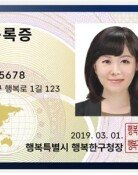Essential local system to be introduced to recruit doctors work in remote areas
Essential local system to be introduced to recruit doctors work in remote areas
Posted February. 02, 2024 07:24,
Updated February. 02, 2024 07:24
The ‘contract-based essential local doctor system’ will be introduced as early as next year by providing scholarships to medical students and having them work in remote areas for a certain amount of time after they become qualified specialists. Over 10 trillion won will be mobilized into essential medical services until 2028, and restrictions on criminal punishment for medical accidents will be introduced.
The South Korean government held discussions on the topic of ‘medical reform to save lives and remote areas’ at Seoul National University Bundang Hospital in Seongnam, Gyeonggi Province on Thursday and announced the ‘four-major reform package’ to strengthen essential medical services. “Now is the golden time to implement medical reforms,” President Yoon Suk Yeol said during the discussions. “If medical reforms, which are desired by most public, take steps back due to some opposition or resistance, it would be equivalent to turning away from the nation’s fundamental roles,” he emphasized. “A country where people are expected to struggle to find an empty bed in an emergency room or are required to run to a pediatric hospital as soon as it opens to avoid a long wait is not a good country,” he said, highlighting the need for medical reforms.
“The medical school quota will be increased starting next year based on the prediction that we will see a shortage of doctors by 15,000 in 2035,” said a Ministry of Health and Welfare member during the discussions. While the exact size of next year’s quota increase is unknown, an average increase of over 1,500 spots for the next 10 years is expected, considering the supply and demand prediction. The medical school quota has been frozen at 3,058 since 2006.
The reform package announced by the ministry includes: 1) introducing the essential local doctor system in which universities, local governments, and medical school students sign a three-way contract to have new doctors work in remote areas for a certain amount of time; 2) implementing the act on special cases concerning the handling of medical accidents that require doctors and medical institutions sign up for liability insurance policies while limiting prosecution against them; and 3) increasing charges for essential medical services.
Sung-Min Park min@donga.com







